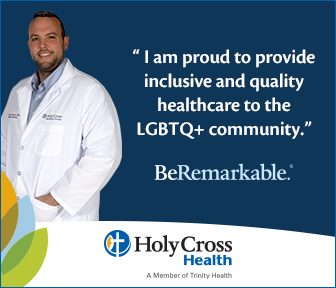
6 Queer Poets: For National Poetry Month, OutSFL Profiles These Local Bards
Since 1996, April has marked National Poetry Month, an initiative launched by the Academy of American Poets. For this year’s Poetry Month, we’d like to introduce you to six queer South Florida poets.&...
Latest

Trey Rhone - Embracing the Obsessions with Music & Pop Culture
Trey Rhone says one of his ongoing inspirations for poetry comes from pop culture. One of his published poems, “I Want to Shoot the Shit with Kurt Cobain Before We Pull the Trigger,” expresses a desir...

Troy Benjamin – Combining Poetry and Modeling
Troy Benjamin says that he finds writing therapeutic because the paper is not going to speak back.
...
Follow Us

Mich. Democrats Spar Over LGBTQ-inclusive Hate Crimes Law
Michigan could soon become the latest state to pass an LGBTQ-inclusive hate crime law, but the state’s Democratic lawmakers disagree on just what kind of law they should pass.
...

Senate Committee: Republican Attorneys General Abused Power Demanding Trans Medical Records
In a 10-page report released on April 16 by staff for the Democratic majority of the U.S. Senate Finance Committee, the Republican attorneys general of Tennessee, Missouri, Indiana, and Texas are accu...


































